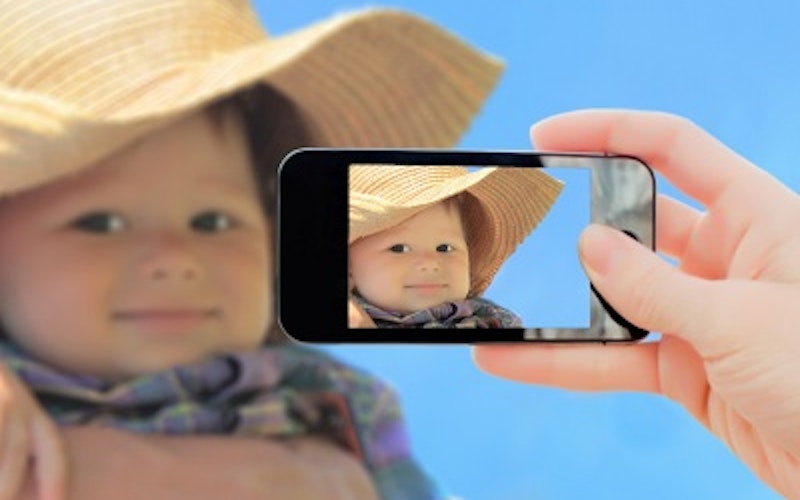
Online
Outsourcing our memories to Instagram
The advent of instantly posting photos online has revolutionized our documentation of our lives, especially the lives of our children. It's not uncommon now for us to take a picture a day, filling up Instagram and Facebook feeds with our everyday activities.
NPR recently reported on a study of this phenomenon by Maryanne Garry, who investigates the effect of photography on childhood memory at the Victoria University of Wellington in New Zealand. "The problem is people are giving away being in the moment,” Garry said.
Psychologist Linda Henkel noted another effect of obsessive photo taking. "As soon as you hit 'click' on that camera, it's as if you've outsourced your memory," she told NPR. "Any time we … count on these external memory devices, we're taking away from the kind of mental cognitive processing that might help us actually remember that stuff on our own."
We've all had the experience of trying to get that one perfect shot, only to have it not only elude us but also deter us from reveling in the actual event taking place. A more balanced view of technology may be achieved by remembering that God's gift to us is grace - freedom from the anxiety of creating perfect moments.
Writer and theologian Frederick Buechner reminds us of the wonder and majesty of our existence: “Listen to your life. See it for the fathomless mystery it is. In the boredom and pain of it, no less than in the excitement and gladness: touch, taste, smell your way to the holy and hidden heart of it, because in the last analysis all moments are key moments, and life itself is grace.”
A balanced view of technology may be achieved by remembering that God's gift to us is grace.
This is the key: that life with our children, our family and friends resounds with the grace of God. The birthday cake-laced face of a 1-year-old, the arm wrapped around our best friend, even a glass of merlot paired with a cheese plate.
I've often wondered if my husband and I should have taken more pictures during our honeymoon. We forgot our digital camera and ended up buying a Kodak disposable on which we took a select few pictures. But we enjoyed every moment.
One of these pictures stands above my kitchen sink. There is the blue ocean in the background that illuminates the aquamarine of my husband's eyes, now reflected in the eyes of our first child. There is my husband's arms tucked around my shoulder, his broad hands holding my body close. We are tan and happy.
When I look at it, I'm reminded of those precious first days of marriage: the sparkle and softness of my husband's gaze. I'm struck by gratefulness for our life together. Besides that photo, though, the secrets of our honeymoon are intact: the touch, taste, smell and holiness of that time bequeathed only to the two of us mostly reside in our memories.
As Christians, we are stewards of our time, money and resources - even if those resources at our disposal are the modern amenities of instantly uploading our lives onto the Internet. We can take heart from Joshua 4, in which God commands His people to remembrance by using the tactile and material: stones brought from the river as symbols of God's faithfulness. The stones became a memorial for the children, who were perhaps too young to remember the crossing of the Jordan. If we obsess over taking hundreds of pictures, we miss out on a key reality: a few stones from the river – or a select few photos - may mean more than a thousand Instagrams.
Topics: Online, Culture At Large, Science & Technology, Technology, Gadgets, News & Politics, Social Trends, Home & Family, Parenting